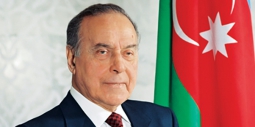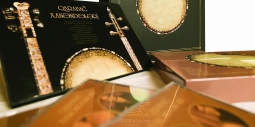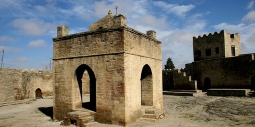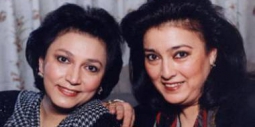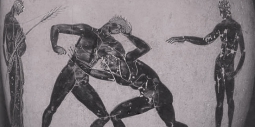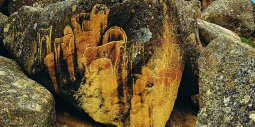Musıc, musıc...
Azerbaijan, one of the most beautiful corners of the world, throughout the centuries has been the cradle of culture and the land that has given birth to so many outstanding musicians. "Music gets into the veins of each Azeri with the mother's milk" - this saying testifies the reality. Known throughout the world as the symbol of Azerbaijan many thousand-year old historical moment - the most famous among the Gobustan cave drawings - a picture of people performing the dance looking like national dance yally. Even now, this dance is still performed at wedding parties, celebrations, and during national holidays. Up to now, in the musical folklore the music accompanying fire-worshipers' rituals is still alive.
In his works, great Azerbaijani poet Nizami mentions different medieval musical instruments (saz, ud, barbar, setar, jang, ganun, mushkar, arganun, kamancha, rubab, tanbur, ney, karanay, sheypur, kus, davul, daf, naghara, zandan, etc.), that proves the fact that, in the epoch of the great poet, not only solo, but also company performances were widely spread. Azerbaijani scholars Safiaddin Urmavi (13th century) and Abdulgadir Maraghayi (14th century) are known as the most influential experts on the Eastern classical medieval music. Throughout its history under various political and social conditions, Azerbaijan has been fighting for its wellbeing, sovereignty and independence. The heroic pages of the country are reflected in the musical epopees - ashyg dastans, heroic jangi.
Azerbaijani mugham in the treasury of the world music has preserved its uniqueness and beauty throughout the centuries. Called "the Conservatoire of the Caucasus", Shusha has given dozens of outstanding masters of mugham – khanendehs (singers) and tarzans (tar-players) – to the musical world of Azerbaijan. For those who love, appreciate and study the music of Azerbaijan, Shusha and Azerbaijani music are indivisible concepts. Sattar, Sadygjan, Jabbar Garyaghdyoghlu, Mashadi Jamil Amirov, Khan Shushinski, Zulfi Adygozalov, Majid Behbudov and many other mugham performers are famous outside Azerbaijan.
The 20th century brought the development of the century-old Azerbaijani music to a new stage. Within several decades, new musical tendencies and European performance schools were founded in Azerbaijan. In 1908, Uzeir Hajibeyli, known as the patriarch of the Eastern music, laid the foundation of the composers' era. The first opera ever composed not only in Azerbaijan but also in the Muslim world, "Leyli and Majnun" Opera, is an original synthesis of mugham and opera. Uzeir Hajibeyli's operetta "Arshyn Mal Alan" has conquered all the countries of the world. One of the first conservatoires in the East was established in Baku in 1921.
At present, Azerbaijan is famous for its high performance traditions, outstanding musicians and highly developed composers' schools.
The works of Azerbaijani composers - Gara Garayev, Afrasiyab Badalbeyli, Fikret Amirov, Niyazi, Arif Malikov, Tofik Guliyev, Vasif Adygozalov, Azer Rzayev, Rauf Hajiyev, Firangiz Alizadeh, Akshin Alizadeh, Faraj Garayev, Rahila Hasanova, etc. - are an inseparable part of the music world of the 20th century. Laureates of numerous international music festivals Farhad Badalbeyli, Sarvar Ganiyev, Khuraman and Fidan Gasymovas, Adila Aliyeva, Vasif Hasanov and others represent the Azerbaijani performance school in the international music world. The great successes of national music singer Alim Gasymov and jazz performer Aziza Mustafazadeh on the international arena should be mentioned separately.
After Azerbaijan regained its independence in 1991, its international relations have extended. International music festivals are regularly held in Baku, attended by many famous foreign musicians. On the other hand, our performers take part in various international musical events abroad. Many world-renowned musicians come to Baku to share their experience with others.
The Friends of Azerbaijani Culture Foundation assists the development of the Azerbaijani music. One of the most recently organized by the Foundation events - "Silk Way - the First Festival of Symphony and Chamber Music" - played a big role in the awakening of the Azerbaijani music.

